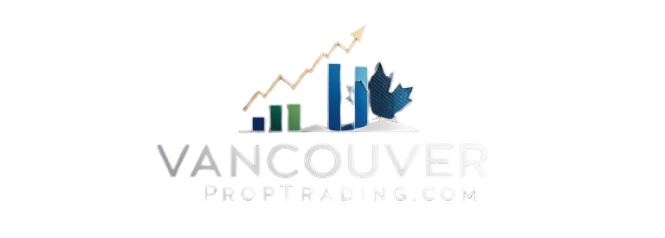
The allure of trading is undeniable, thanks in large part to Hollywood. We’ve all seen the cinematic portrayals: the yelling on the trading floor of Boiler Room, the maverick genius of The Big Short, and the cutthroat psychological warfare of Billions. These films and TV shows create a compelling narrative—one of high-octane drama, instant riches, and the glamorous life of a financial warrior. But for someone at home wanting to learn how to trade, this media-driven fantasy is often a major roadblock. It confuses spectacle with strategy and adrenaline with discipline.
This post will separate the wheat from the chaff, comparing the most common myths of trading with the sober reality for today’s prop and retail traders.
Myth 1: The Adrenaline-Fueled, High-Stakes Life ⚡
In movies, every trade is a life-or-death decision, filled with screaming, dramatic music, and split-second calls. Trading rooms are loud, chaotic arenas where fortunes are won or lost with a single order.
- The Reality for a Trader at Home: The reality is far more mundane and quiet. Trading is often a solitary, sedentary profession. It’s a lot of waiting for a setup that meets your criteria, managing a position, and monitoring charts. The real adrenaline rush is replaced by a professional calm. The true work is done in the hours before the market opens and after it closes, meticulously reviewing your trading journal and backtesting strategies. The drama is a liability, not an asset. ✅
Myth 2: The “Get Rich Quick” Scheme and Instant Millions 💸
Hollywood loves a good overnight success story. The narrative is simple: find the one big trade, make a fortune, and buy the Lamborghini on a whim, à la The Wolf of Wall Street. Trading is sold as a shortcut to wealth.
- The Reality for a Trader at Home: The truth about trading for beginners is that it’s a game of consistency, not luck. Successful traders make consistent, small gains over a long period. They focus on maintaining a positive expectancy and minimizing risk on every single trade. It’s a marathon, not a sprint. The “get rich quick” mentality is the primary reason why most traders fail, as it encourages them to take on reckless, outsized risks that can wipe out their capital in a single day. 📉
Myth 3: The Myth of Market Manipulation and Power 👑
Films like Boiler Room and television shows like Billions often portray characters who can move the market or a stock’s price with a single massive order or a well-placed rumor. The successful trader is a titan who bends the market to their will.
- The Reality for a Trader at Home: This is not even remotely realistic. Modern financial markets are immense, liquid ecosystems driven by trillions of dollars in volume and millions of institutional participants. The idea that a retail or prop trader can move a price is pure fiction. Your job is not to control the market, but to follow its trends. If the market is moving up, you go with it; down, you go with it. The true power is in your ability to adapt to what the market is telling you, not to force it to do what you want. 📊
Myth 4: The Cutthroat and Unethical Psycho-Profile 🔪
The media often depicts successful traders as being cold, ruthless, and without morals—a “dog-eat-dog” psychological profile required to survive. The battle is against other people.
- The Reality for a Trader at Home: The most successful traders are often calm, analytical, and disciplined. The real battle is not with other traders, but with yourself. The true challenge is mastering your own emotions of fear, greed, and impatience. This is where a deep understanding of market psychology becomes a powerful asset. By recognizing the collective fear or euphoria of other traders, you can remain calm and objective when others are panicking. Being cutthroat or emotional in a trade is a recipe for disaster. The greatest edge a trader can have is a sound, professional mindset. 🧘♂️
The Sobering and More Rewarding Reality of Trading Today 📈
For someone who wants to learn how to trade from home, the reality is far removed from the silver screen. Here’s what it actually looks like:
- It’s a Business: You must approach trading as a serious business. This means having a formal trading plan, a detailed risk management framework, and a commitment to continuous learning. Your P&L is your report card, and a disciplined process is the key to earning a good grade.
- It’s a Marathon, Not a Sprint: Professional traders understand that consistency is more important than a single big win. They focus on preserving their capital and achieving a solid risk-reward ratio on every trade. This patience and discipline is what builds long-term wealth.
- The Tools are Your Edge: The modern trader’s tools aren’t just intuition; they are data, technology, and a trading journal. The ability to use software for analysis, to find an edge, and to track every trade meticulously is what separates a professional from an amateur.
The Reality for a Professional: Discipline and the Power of Data 📈
- The Tools are Your Edge: The modern trader’s most powerful tool is not a secret indicator but a trading journal. This is more than a simple record; it’s a critical feedback loop for growth. By meticulously documenting every trade—including the pre-trade thesis, the execution, and your emotional state—you create a rich database of your own performance. 📓
- AI as a Partner: You can take your journal analysis to the next level with AI. An AI assistant can help you delve deeper into your results by identifying recurring patterns of error you may have missed. For example, it could correlate your trades with specific market conditions or point out emotional triggers you may not have noticed (e.g., “your biggest losses often occur on Tuesdays” or “you tend to revenge trade after a big win”). This allows you to get a more detailed evaluation of your trading results, turning raw data into actionable insights for improvement. 🧠
This is the reality of trading: It’s a challenging, rewarding, and deeply intellectual pursuit. While it may lack the Hollywood glamour, it provides something far more valuable: a direct, merit-based path to professional freedom and financial independence through hard work, discipline, and skill. 🎯
